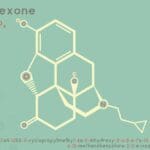People often struggle unnecessarily with drug or alcohol addiction because of the harmful myths perpetuated by society.
Knowing the truth about addiction treatment options can help you or someone you love take the first step towards recovery.
Myth #1: Substance Abuse Is a Choice
This myth might be one of the most widely believed. The notion that addiction is a choice belies the scientific evidence that it is a biological illness. Just as no one would scoff at someone struggling with cancer on that basis that it was their own choices that led them to that point in their lives, people with substance use disorders should not be judged for their condition.
Myth #2: Addiction Is Shameful
The concept of addiction being shameful is one of the many myths that have grown in response to addiction being a choice, since it implies that someone dealing with substance abuse has a lack of willpower or self-control.
Additionally, our country’s societal expectations have often been influenced by the Church. This does not necessarily imply that the Church has ever claimed addiction to be a sin, but the negative connotation surrounding intoxication and frequent indulgences likely did not inspire those struggling to seek help or even to talk about it. While the Church in general has improved in this area, the original connotations still linger in society today.
Myth #3: Addiction Is a Result of Circumstantial Factors
Many of the circumstantial factors associated with addiction are tied to other societal stigmas that carry negative connotations: low socioeconomic status, a poor or unstable family life, or a history of mental illness.
While it is true that some factors like a family history of substance abuse and mental illnesses can make someone more likely to develop an addiction, there is no direct cause and effect link. This is important to realize not only because, again, it implies that addiction is not a biological illness, but also because this myth perpetuates long-held stereotypes.
Someone raised in a happy, suburban household could be just as susceptible to developing substance abuse habits as someone growing up in a single parent inner-city home. Addiction does not discriminate.
Myth #4: Dependence Is the Same as Addiction
While it is true that busting this particular myth can be tricky and should be decided on a case-by-case basis, there is still a definite difference between being dependent on a substance and becoming addicted to a substance.
The most prominent differences between the two are the emotional and social symptoms of addiction that can be triggered when someone is craving the substance or experiencing withdrawal. Essentially, the degree to which a person is willing to go to get the substance and the way that they react without it can be helpful in differentiating dependency and addiction situations.
Myth #5: You Can Only Become Addicted to Substances
Since addiction is a biological illness, it follows that people can develop addictions to more than drugs and/or alcohol. For example, addictions to food, sex, and work involve high rewards or serotonin boosts much like substance abuse.
These kinds of addictions often are manifested and treated as substitute addictions when someone is in recovery. They can be developed when the original cause(s) for the addictive behaviors or illness are not resolved and when extrinsic rewards are still being pursued.
Myth #6: Quitting Cold-Turkey Is the Best Way to Get Sober
There is no “one size fits all” substance abuse recovery plan. It is a process that must be tailored to each individual’s experiences, medical history, and circumstance.
As this journey is one that should include outside help, it is important to find a treatment center that specializes in areas that are specific to you.
While detoxification will need to be a part of any recovery plan, it can be implemented in different ways, at different degrees or rates, and in combination with a variety of other practices and approaches like meditation, cognitive therapy, exercise, art therapy, etc.
Myth #7: If You Are Addicted, You Are an Anomaly
If you or a loved one is struggling with substance abuse, you are not alone. According to Dr. Kima Joy Taylor, director of Closing the Addiction Treatment Gap, “Approximately one in every 10 Americans over the age of 12 are addicted to alcohol and drugs.”
Unfortunately, substance abuse is a common denominator among more people than we might realize. Yet, despite the staggering amount of people who are suffering from the same illness, only 11 percent receive treatment. This treatment gap is largely due to the societal stigmas that perpetuate myths about addiction and recovery.
Myth #8: Recovery Is a Burden That Must Be Carried Alone
The road to recovery is definitely one that should not be walked alone. It is true that you cannot enable your loved one’s substance abuse behavior, nor can you do the heavy-lifting or treatment for them. It is also true that developing and strengthening a support system is extremely beneficial to the recovery process for both those struggling with addiction and their loved ones.
Myth #9: A Sober Life Is a Boring Life
Maintaining sobriety post-recovery does not have to look like a monastic, lonely lifestyle. Living a sober life should look like a full, free life where you are not limited by your addiction’s chains.
Invest your new-found energy and time in practices and people that are life-giving and enjoyable. This will look unique to each person, but the concept is applicable to all. There can still be many opportunities to celebrate and to explore. Sober dates and sober family activities can help you learn to make memories without addictive substances.
Myth #10: Addiction Is the End
If you believe that you or your loved one are struggling with substance abuse or relapse, please know that this is not the end or how it will always have to be.
Recovery is always an option, no matter what challenges you’ve faced in the past. While it is not always easy, it is always worth it.
(314) 464-0222. We’re here to help.










